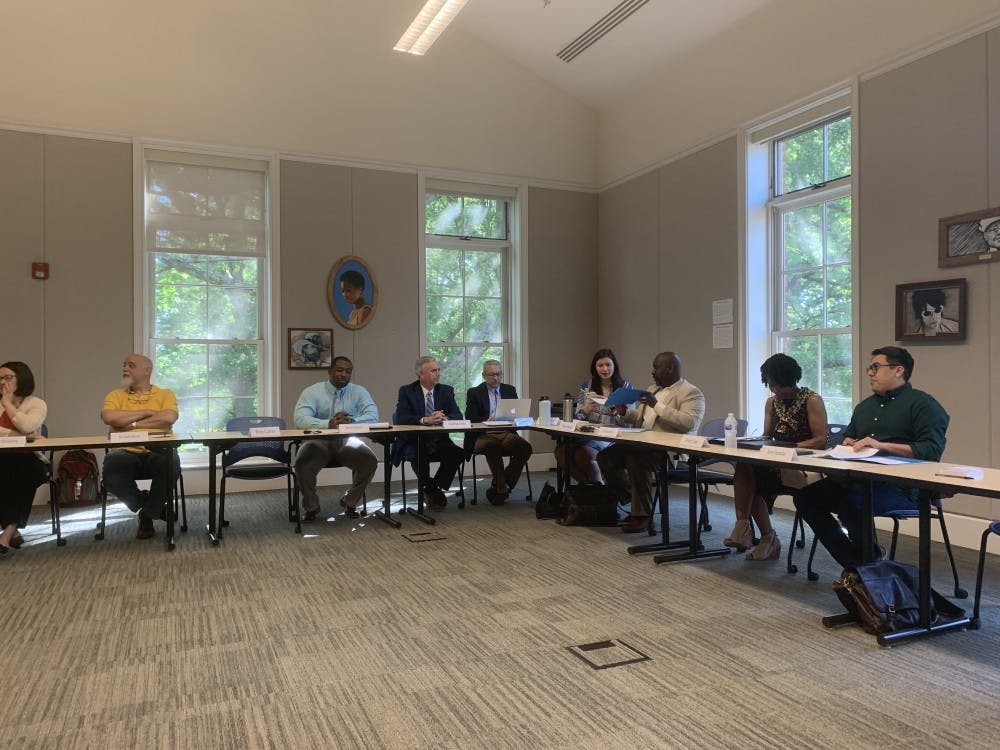Two months after the Chancellor tasked them with rebuilding bridges between UNC police and the campus community, members of the Campus Safety Commission expressed a lack of clarity on their mission. They spent their third meeting discussing semantics and the purpose of their work.
“All of us around this table are not on the same page about what we’re supposed to be doing,” said resiliency and student support programs coordinator and commission co-chairperson DeVetta Holman Nash, after a discussion regarding the commission’s formal charge got into the weeds.
Interim Chancellor Kevin Guskiewicz formed the Campus Safety Commission in response to a breakdown in student-police relations, among other issues, and presented them with a guiding charge to help them navigate the process of repairing the community’s trust in law enforcement.
“The Chancellor said that there is a crisis of trust on this campus,” said Lawrence Grossberg, a professor in the communications department. “And that seems to be at least our starting point.”
Issues came up during the meeting about the ambiguity of the group's role. Some committee members pointed out contradictions in the document that would inhibit the commission’s authority and reach, while others argued it wasn't their role to question the Chancellor, and the commission should continue work with the material available to them.
“This is one where I think trying to get this specific into this level of distance from actual work is not necessary,” commission member Richard Myers said.
In the charge to the commission, the Chancellor instructs the group to serve as a liaison between University Police and the broader University community, and to receive complaints regarding safety, but he prohibits them from providing direct oversight or management over University police.
“We just complain to the Chancellor and ask him to fix it,” co-chairperson Frank Baumgartner of the political science department joked at one point.
“How can we complain if we don’t have access?” Grossberg responded.




